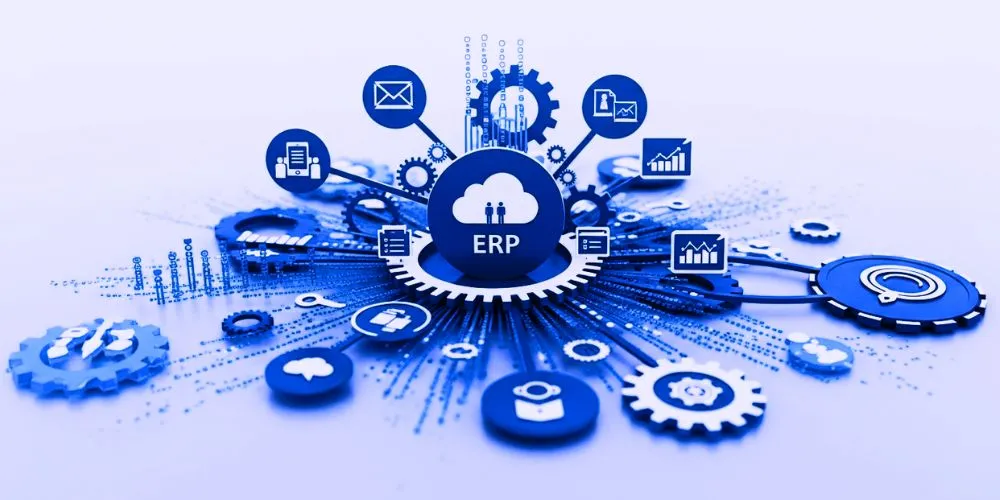Organizations face escalating demands for seamless and efficient operations in today’s fast-paced and interconnected business world. As business complexities grow, so does the need for innovative solutions that integrate various functions, streamline processes, and foster agile decision-making. Enterprise Resource Planning (ERP) technology emerges as a powerful solution that has the potential to revolutionize how businesses operate. By unifying diverse departments, data, and processes into a centralized platform, it offers a transformative approach to data management and process optimization. This article delves into the profound significance of ERP technology, explores its key components, and highlights its transformative impact on businesses striving to excel in the digital age.
The Significance of ERP Technology
ERP technology signifies a paradigm shift in how organizations manage and utilize resources. It provides a comprehensive, real-time view of business operations, revolutionizing decision-making and enhancing efficiency. The following points underscore the profound significance of ERP technology.
Centralized Data and Information
ERP technology is a hub, consolidating data from various business units into a single, accessible database. This centralized repository of information empowers decision-makers with accurate and up-to-date insights, promoting a data-driven culture that guides strategic planning and operational execution.
Process Automation and Efficiency
Process automation is at the heart of ERP technology. By automating repetitive and time-consuming tasks, ERP systems free up human resources and minimize errors. Streamlining workflows improves operational efficiency, quicker response times, and reduced operational costs.
Improved Collaboration and Communication
ERP technology breaks down information silos by providing a unified platform for various departments to collaborate. This integrated environment enhances cross-functional collaboration, facilitates transparent communication, and promotes the sharing of insights, leading to better-informed decisions.
Enhanced Visibility and Reporting
ERP systems generate real-time reports and analytics that provide a comprehensive view of the organization’s performance. This visibility into key performance indicators (KPIs) enables leaders to monitor progress, identify trends, and swiftly respond to emerging opportunities or challenges.
Regulatory Compliance
It safeguards in an era of increasing regulation and compliance requirements. By integrating compliance processes and ensuring data accuracy and security, ERP systems help organizations meet industry regulations and legal standards.
Critical Components of ERP Technology
When it comes to ERP technology, businesses need to consider specific critical components. One of the most essential is seamlessly integrating different systems and applications.
Financial Management
ERP systems offer a comprehensive suite of financial tools, including accounting, financial reporting, budgeting, and billing. This module ensures accurate financial insights and enables seamless financial operations.
Supply Chain Management
ERP technology optimizes the supply chain by integrating procurement, inventory management, demand forecasting, and supplier management. This integration leads to cost savings, reduced stockouts, and improved delivery times.
Human Resources Management
The HR module automates various HR processes, including payroll and benefits administration, employee records, and talent management. By minimizing administrative burdens, ERP systems enhance workforce productivity and engagement.
Customer Relationship Management (CRM)
ERP technology encompasses Customer Relationship Management (CRM) functionalities, offering tools to manage customer interactions, sales leads, marketing campaigns, and customer service. This integration enhances customer engagement and loyalty.
Manufacturing and Production
The manufacturing module within ERP systems optimizes production processes. It manages production schedules, resource allocation, quality control, and shop floor operations, leading to streamlined manufacturing operations.
Business Intelligence and Analytics
ERP technology’s analytics capabilities provide actionable insights into business performance. ERP systems enable data-driven decision-making at all organizational levels by providing advanced reporting and data visualization capabilities.
Impact of ERP Technology on Business Growth
The impact of ERP technology on business growth is undeniable. With the ability to seamlessly integrate different systems and applications, customize the software to meet specific needs, and implement robust security measures, businesses can operate more efficiently and effectively.
Operational Efficiency
ERP technology streamlines processes by eliminating bottlenecks and reducing manual intervention. This efficiency translates into smoother operations, shorter lead times, and more effective resource utilization, ultimately enhancing overall productivity.
Cost Savings
ERP systems contribute to significant cost savings by optimizing processes and minimizing waste. These savings arise from reduced operational inefficiencies, better inventory management, and optimized resource allocation.
Data-Driven Decision-Making
The real-time data and analytics provided by ERP technology empower leaders to make well-informed decisions promptly. This agility in decision-making allows organizations to respond swiftly to market changes and capitalize on emerging opportunities.
Improved Customer Experience
Integrated CRM functionalities enable organizations to provide personalized and seamless customer experiences. Centralizing customer data and interactions enhances customer satisfaction and fosters brand loyalty.
Enhanced Agility
ERP technology empowers organizations with the flexibility and agility to quickly adapt to changing market conditions and capitalize on new opportunities. This adaptability is crucial for staying competitive and sustaining growth in a rapidly evolving business landscape.
Conclusion
ERP technology has evolved into a cornerstone of efficient and growth-oriented businesses. ERP systems empower organizations to achieve operational excellence and drive sustainable growth by centralizing data, automating processes, and promoting collaboration. The transformative impact of ERP technology extends far beyond its technical capabilities; it reshapes organizational culture, streamlines workflows, and positions businesses for success in a digital-driven world.
Embracing ERP technology isn’t merely an investment in software; it’s an investment in the future—a future marked by efficient operations, informed decision-making, and the ability to navigate the complexities of the modern business environment. As organizations seek ways to thrive in the digital age, it emerges as a vital tool for achieving enhanced efficiency and sustainable growth.













